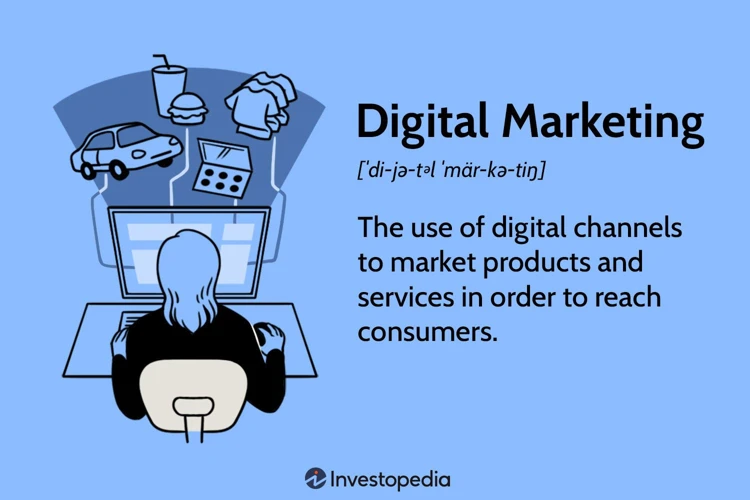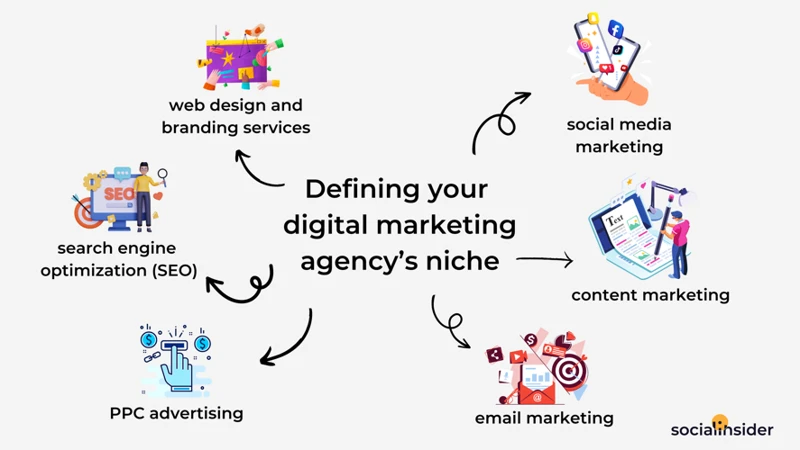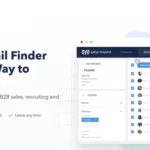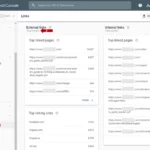While having prior experience in SEO can be beneficial, it is not always necessary. With the right knowledge, dedication, and continuous learning, you can start an SEO agency even as a beginner.
Research and Planning

Research and planning are crucial steps in starting an SEO agency. 1. Identify Your Target Market: Begin by understanding who your ideal clients are, such as small businesses or e-commerce websites. Determine their needs and pain points to tailor your services accordingly. 2. Analyze the Competition: Research other SEO agencies in your target market to identify their strengths, weaknesses, and pricing strategies. This analysis will help you differentiate your agency and offer unique value. 3. Define Your Services: Determine the specific SEO services you will offer, such as keyword research, on-page optimization, or link building. Specializing in a niche can help you stand out and attract clients. 4. Create a Business Plan: Develop a detailed plan outlining your agency’s goals, target market, pricing structure, and marketing strategies. This plan will serve as a roadmap for your agency’s growth. By conducting thorough research and careful planning, you can set a strong foundation for your SEO agency’s success.
1. Identify Your Target Market
Identifying your target market is a crucial step in starting an SEO agency. By understanding who your ideal clients are, you can tailor your services to meet their specific needs. Here are some key points to consider:
Research: Conduct market research to identify industries or niches that are in need of SEO services. Look for businesses that have a strong online presence but are not optimizing their websites for search engines.
Demographics: Determine the demographics of your target market, such as age, location, and income level. This will help you tailor your marketing efforts and communication strategies to effectively reach your potential clients.
Needs and Pain Points: Understand the needs and pain points of your target market. What are their goals and challenges? How can your SEO services help them overcome these challenges and achieve their objectives?
Competition: Analyze the competition in your target market. Who are the existing SEO agencies catering to your ideal clients? What are their strengths and weaknesses? This analysis will help you identify gaps in the market and differentiate your agency.
Specialization: Consider specializing in a specific industry or niche. This will allow you to position yourself as an expert in that area and attract clients who are specifically looking for SEO services tailored to their industry.
By identifying your target market, you can focus your marketing efforts and tailor your services to meet the specific needs and preferences of your potential clients. This will increase the chances of attracting the right clients and building a successful SEO agency.
Learn more about how to get SEO clients
2. Analyze the Competition
When starting an SEO agency, it’s essential to analyze the competition in your target market. This step will help you gain valuable insights into what other SEO agencies are doing and how you can differentiate yourself. By studying your competitors’ strategies and approaches, you can identify their strengths and weaknesses and find opportunities to offer unique value to your clients. Begin by researching other SEO agencies in your niche or geographic area. Look at their websites, social media presence, and client testimonials. Take note of their pricing strategies, the services they offer, and any areas where they may be lacking. This analysis will help you understand what sets your competitors apart and how you can position your agency as a better alternative. Additionally, consider reaching out to industry professionals or attending industry events to gather more insights about the competition. Remember, the goal is not to copy your competitors, but rather to learn from them and find ways to stand out in the market. By thoroughly analyzing the competition, you can develop a unique selling proposition and create strategies that will set your SEO agency apart from the rest.
3. Define Your Services
When starting an SEO agency, it’s essential to define the specific services you will offer to your clients. This will help you establish your expertise and attract the right target audience. Here are some key considerations to keep in mind when defining your services:
1. Keyword Research: Offer comprehensive keyword research to identify high-volume and relevant keywords that can improve your clients’ search rankings. This involves using tools like Google Keyword Planner to find popular search terms in your clients’ industry.
2. On-Page Optimization: Provide on-page optimization services to enhance the visibility and relevance of your clients’ web pages. This includes optimizing meta tags, headers, and content to align with targeted keywords and improve search engine rankings.
3. Link Building: Offer link building strategies to help your clients build high-quality backlinks from reputable websites. This can improve their website authority and increase organic traffic.
4. Content Creation: Develop high-quality and engaging content that aligns with your clients’ target audience. This includes blog posts, articles, and website copy that incorporates relevant keywords and attracts organic traffic.
5. Website Audits: Conduct comprehensive website audits to identify technical issues, improve site speed, and optimize user experience. This will help your clients enhance their website’s overall performance.
6. SEO Reporting and Analysis: Provide regular reports and analysis to track the progress of your clients’ SEO campaigns. This includes monitoring keyword rankings, organic traffic, and conversion rates to measure the effectiveness of your strategies.
By offering a range of services that cater to the specific needs of your clients, you can position your SEO agency as a valuable and comprehensive solution. Remember to stay up-to-date with the latest SEO trends and algorithms to provide the best possible results for your clients. Additionally, offering additional services like SEO consultation and strategy planning can help you expand your offerings and attract more clients.
4. Create a Business Plan
Creating a business plan is a crucial step in starting an SEO agency. It serves as a roadmap for your agency’s success and helps you stay focused on your goals. To create an effective business plan, follow these steps:
Identify Your Goals: Determine what you want to achieve with your SEO agency. Set specific, measurable, attainable, relevant, and time-bound (SMART) goals that align with your long-term vision.
Define Your Target Market: Clearly identify your target audience, such as small businesses, startups, or specific industries. Understand their needs, pain points, and challenges to tailor your services and marketing strategies accordingly.
Establish Your Pricing Structure: Decide how you will charge for your services. Consider factors such as the scope of work, complexity of projects, and industry standards. You can offer different pricing packages or charge hourly or monthly rates.
Create a Marketing Strategy: Outline how you will promote your SEO agency and attract clients. Determine the marketing channels you will utilize, such as content marketing, social media, or networking events. Develop a budget and timeline for your marketing activities.
Analyze Your Competition: Research other SEO agencies in your target market and analyze their strengths, weaknesses, and pricing strategies. Differentiate your agency by offering unique value and positioning yourself as an expert in your niche.
Establish Financial Projections: Estimate your agency’s revenue and expenses for the first year and create a financial forecast for the next few years. Include costs such as employee salaries, software subscriptions, marketing expenses, and office rent.
Monitor and Review: Regularly review and update your business plan to adapt to changing market conditions and business goals. Monitor your progress against your goals and make necessary adjustments to ensure your agency’s growth and success.
By creating a comprehensive business plan, you will have a clear roadmap to guide your SEO agency’s development and increase your chances of success in the competitive industry.
Setting Up Your Agency

Setting up your SEO agency involves several important steps. 5. Register Your Business: Choose a unique name for your agency and register it with the appropriate government authorities. This will establish your agency as a legal entity. 6. Build Your Team: Assemble a team of skilled professionals who can help you deliver high-quality SEO services to your clients. Consider hiring SEO experts, content writers, and web developers to cover various aspects of your agency’s operations. 7. Establish Your Office: Find a suitable location for your agency’s office that is convenient for both your team and clients. Set up a comfortable and professional workspace that fosters productivity and collaboration. 8. Set Up Your Website: Your agency’s website is a crucial tool for attracting clients. Design a visually appealing and user-friendly website that showcases your services, case studies, and client testimonials. Optimize the website for search engines to improve its visibility. By following these steps, you can lay the foundation for a successful SEO agency.
5. Register Your Business
When starting an SEO agency, it’s important to register your business to establish it as a legal entity. Here are the key steps to register your business:
- Choose a Business Structure: Decide on the legal structure for your agency, such as a sole proprietorship, partnership, or limited liability company (LLC). Each structure has its own benefits and considerations, so choose the one that suits your agency’s needs.
- Select a Business Name: Choose a unique and memorable name for your agency. Ensure that the name aligns with your brand and is not already in use by another registered business.
- Register with the Government: Visit your local government office or check their website to complete the necessary registration paperwork. Provide the required information, including your agency’s name, business structure, and contact details.
- Obtain the Necessary Permits and Licenses: Depending on your location and the services you offer, you may need to obtain specific permits or licenses to legally operate your SEO agency. Research the requirements in your area and comply with all necessary regulations.
- Register for Taxes: Contact the appropriate tax authority to register your agency for taxes. This may include obtaining an employer identification number (EIN) and registering for state and local taxes.
- Open a Business Bank Account: Separate your personal and business finances by opening a dedicated business bank account. This will make it easier to manage your agency’s finances and track expenses.
By registering your business, you establish credibility and ensure that you comply with legal requirements. This step is essential for the long-term success and growth of your SEO agency.
6. Build Your Team
Building a strong team is essential for the success of your SEO agency. Here are some key steps to follow:
A. Define Roles and Responsibilities: Determine the specific roles you need to fill in your agency, such as SEO specialists, content writers, web developers, and project managers. Clearly define the responsibilities and expectations for each role.
B. Hire Skilled Professionals: Look for individuals with expertise in SEO and digital marketing. Consider their experience, qualifications, and portfolio when hiring. Conduct thorough interviews and assessments to ensure you are selecting the best candidates for your team.
C. Collaborate with Freelancers or Agencies: If you don’t have the resources to hire full-time employees, you can collaborate with freelancers or partner with other agencies. This allows you to tap into specialized skills and expand your capacity without the long-term commitment.
D. Foster a Positive Work Environment: Create a supportive and collaborative work culture where team members can thrive. Encourage open communication, provide training opportunities, and recognize and reward their achievements.
E. Continuously Develop Skills: SEO is an ever-evolving field, so it’s crucial for your team to stay updated with the latest trends and techniques. Encourage them to attend industry conferences, participate in webinars, and pursue certifications to enhance their skills.
By building a talented and dedicated team, you can ensure that your SEO agency has the expertise and manpower to deliver exceptional results for your clients.
7. Establish Your Office
Establishing your office is an important step in setting up your SEO agency. Here are some key considerations to keep in mind:
1. Location: Choose a location that is convenient for both you and your potential clients. Consider factors such as accessibility, proximity to other businesses, and the overall ambiance of the area.
2. Office Space: Determine the size and layout of your office space based on your current needs and future growth projections. Consider whether you need a dedicated office or if a shared workspace or coworking space would suffice.
3. Furniture and Equipment: Invest in comfortable and functional furniture for your office, including desks, chairs, storage cabinets, and conference room furniture. Additionally, ensure that you have the necessary equipment such as computers, printers, and high-speed internet.
4. Office Supplies: Stock up on essential office supplies such as stationery, pens, notepads, and sticky notes. It’s also important to have a reliable phone system and sufficient lighting for a productive work environment.
5. Branding: Use your office space as an opportunity to showcase your brand. Incorporate your agency’s logo, colors, and signage to create a cohesive and professional atmosphere.
6. Meeting Rooms: If you plan on meeting clients in person, designate a dedicated meeting room or area where you can hold presentations and discussions. Ensure that the space is equipped with the necessary technology, such as projectors or video conferencing tools.
7. Work Environment: Consider the overall work environment and atmosphere you want to create. Incorporate elements that foster creativity, collaboration, and productivity, such as comfortable seating areas, whiteboards for brainstorming, and plants for a touch of greenery.
Remember, establishing your office is not just about having a physical space, but also about creating a professional and welcoming environment that reflects your brand and values. Take the time to carefully plan and design your office to set the right tone for your SEO agency.
8. Set Up Your Website
Setting up your website is a crucial step in establishing your SEO agency’s online presence. Follow these steps to ensure your website is optimized for search engines and user-friendly. Choose a Domain: Select a domain name that is memorable, relevant to your services, and easy to spell. Consider using keywords related to SEO to improve your website’s visibility. Design and Layout: Create a clean and professional design that reflects your agency’s branding. Use a responsive layout to ensure your website looks great on all devices. Create Engaging Content: Develop high-quality content that showcases your expertise and provides value to your target audience. Include relevant keywords naturally throughout your content to improve search engine rankings. Optimize On-Page Elements: Optimize meta titles, meta descriptions, and header tags with relevant keywords. This will help search engines understand the content of your website. Add a Blog: Incorporate a blog section to regularly publish informative and engaging articles related to SEO. This will not only attract visitors but also demonstrate your agency’s knowledge and expertise in the field. Integrate Social Media: Include social media buttons on your website to encourage visitors to connect with your agency on various platforms. This will help broaden your reach and increase brand visibility. Implement SEO Tools: Install SEO plugins or tools to optimize your website’s performance, monitor analytics, and track keyword rankings. This will help you make data-driven decisions to improve your website’s visibility and user experience. By following these steps and implementing effective SEO strategies, you can set up a website that attracts visitors and converts them into clients for your SEO agency.
Developing Your Brand

Developing your brand is essential for establishing credibility and attracting clients to your SEO agency. 9. Define Your Unique Selling Proposition: Determine what sets your agency apart from the competition. It could be your expertise in a specific industry or your innovative approach to SEO strategies. Clearly define your unique selling proposition to differentiate yourself in the market. 10. Create a Memorable Logo: A well-designed logo can leave a lasting impression on potential clients. Invest in a professional logo that reflects your agency’s values and resonates with your target audience. 11. Build a Professional Website: Your website is the face of your agency online. Ensure it is visually appealing, user-friendly, and showcases your services and client testimonials. 12. Establish Your Online Presence: Utilize social media platforms and online directories to increase your agency’s visibility. Engage with your audience, share valuable content, and build a strong online presence. By developing a strong brand, you will position your SEO agency as a reputable and trustworthy choice for clients.
9. Define Your Unique Selling Proposition
To stand out in the competitive SEO industry, it is crucial to define your unique selling proposition (USP). This is what sets your agency apart from others and convinces potential clients to choose your services. Here are some steps to help you define your USP:
1. Identify Your Strengths: Assess your agency’s strengths, such as specialized expertise, innovative strategies, or exceptional customer service. Understand what makes you different from other SEO agencies.
2. Understand Your Target Market: Determine the specific needs and pain points of your target market. This will help you tailor your USP to address their unique challenges and offer solutions that resonate with them.
3. Focus on Benefits: Highlight the benefits that clients can expect from working with your agency. This could include improved organic rankings, increased website traffic, higher conversion rates, or enhanced online visibility.
4. Emphasize Your Unique Approach: Showcase the unique methodologies, tools, or techniques that your agency uses to deliver exceptional results. Differentiate yourself by offering a fresh perspective or a new approach to SEO.
5. Communicate Your USP: Once you have defined your USP, ensure that it is clearly communicated in your marketing materials, website content, and client interactions. Consistently emphasize your unique value proposition to attract and retain clients.
By defining a strong and compelling USP, you can position your SEO agency as a valuable and indispensable partner for businesses seeking to improve their online presence and achieve their digital marketing goals.
10. Create a Memorable Logo
Creating a memorable logo for your SEO agency is an essential step in developing your brand identity. Your logo serves as a visual representation of your agency and helps differentiate you from competitors. When designing your logo, keep the following tips in mind. 1. Reflect Your Brand: Your logo should align with your agency’s values, mission, and target market. Consider the emotions and messages you want to convey through your logo. 2. Keep it Simple: A clutter-free and clean design will make your logo more memorable and easily recognizable. Avoid using too many colors, fonts, or complicated graphics. 3. Make it Versatile: Your logo should be scalable and look great across different platforms and mediums, including websites, social media profiles, business cards, and signage. 4. Choose Appropriate Colors: Colors evoke emotions and associations, so select colors that align with your brand personality and industry. Research color psychology to understand the impact of different colors on people’s perceptions. 5. Test and Refine: Once you have a logo design, gather feedback from colleagues, friends, and potential clients. Make necessary adjustments to ensure your logo resonates with your target audience. By creating a memorable logo, you can establish a strong visual identity for your SEO agency and make a lasting impression on potential clients.
11. Build a Professional Website
Building a professional website is an essential step in establishing your SEO agency’s online presence. Here are some key considerations to keep in mind:
1. Select a Domain Name: Choose a domain name that is relevant to your agency and easy for clients to remember. Consider using keywords related to SEO or your target market.
2. Choose a Website Platform: Select a user-friendly website platform, such as WordPress or Wix, that offers customizable templates and SEO-friendly features.
3. Design a Clean and Modern Layout: Opt for a clean and modern website layout that is visually appealing and easy to navigate. Use high-quality images and ensure that the website is mobile-responsive.
4. Highlight Your Services: Clearly showcase the SEO services you offer, along with their benefits and unique selling points. Include relevant case studies or testimonials to build trust with potential clients.
5. Optimize for Search Engines: Implement on-page SEO techniques, such as optimizing meta tags, headers, and URLs, to improve your website’s visibility in search engine results.
6. Include a Contact Form: Make it easy for potential clients to get in touch with you by including a contact form or providing contact information on your website.
7. Incorporate Relevant Content: Create a blog section where you can regularly publish informative and valuable content related to SEO. This will not only help establish your expertise but also attract organic traffic to your website.
8. Integrate Social Media: Add social media buttons to your website, allowing visitors to easily connect with your agency on platforms like Facebook, Twitter, and LinkedIn.
Remember to regularly update and maintain your website to ensure it reflects the latest information about your agency and remains optimized for search engines. A professional website will serve as a powerful marketing tool and help establish credibility for your SEO agency.
12. Establish Your Online Presence
Establishing a strong online presence is essential for the success of your SEO agency. Here are some key steps to consider when establishing your online presence:
1. Create a Professional Website: Design a visually appealing and user-friendly website that showcases your agency’s services, expertise, and past successes. Optimize your website for search engines by incorporating relevant keywords and meta tags.
2. Implement SEO Strategies: Apply SEO techniques to your own website to demonstrate your expertise and attract organic traffic. This includes optimizing your website’s on-page elements, creating high-quality content, and building authoritative backlinks.
3. Leverage Social Media: Create profiles on popular social media platforms such as Facebook, Twitter, and LinkedIn. Regularly post engaging content related to SEO, industry trends, and success stories to build a following and establish your agency as a thought leader.
4. Engage in Online Communities: Participate in relevant online forums, communities, and industry-specific groups. Share your expertise, answer questions, and provide valuable insights to establish yourself as an authority in the SEO field.
5. Guest Blogging: Seek opportunities to write guest blog posts for reputable websites and publications. This allows you to reach a wider audience, gain credibility, and drive traffic back to your own website.
6. Online Advertising: Consider investing in online advertising to increase your agency’s visibility. Platforms such as Google Ads and social media advertising can help you reach your target audience and generate leads.
7. Monitor and Respond: Regularly monitor your online presence and respond to comments, inquiries, and reviews. Promptly addressing feedback helps build trust and credibility with potential clients.
By implementing these strategies, you can establish a strong online presence for your SEO agency, attract potential clients, and position yourself as a trusted authority in the industry. Remember to consistently update and optimize your online presence to stay ahead of the competition.
Attracting Clients

Attracting clients is a vital aspect of running a successful SEO agency. 13. Offer a Free SEO Audit: Provide potential clients with a complimentary SEO audit to showcase your expertise and identify areas of improvement. This will demonstrate the value you can bring to their business. 14. Utilize Content Marketing: Create informative and valuable content, such as blog posts and guides, that address common SEO challenges and provide solutions. This will establish you as a thought leader in the industry and attract organic traffic to your website. 15. Network and Attend Industry Events: Attend conferences, workshops, and networking events to connect with potential clients and industry professionals. Building relationships and showcasing your expertise can lead to valuable partnerships and referrals. 16. Leverage Social Media: Utilize social media platforms to share industry insights, case studies, and success stories. Engage with your audience, respond to inquiries, and showcase your agency’s unique selling proposition. By implementing these strategies, you can effectively attract clients and establish your SEO agency as a trusted industry leader.
13. Offer a Free SEO Audit
13. Offer a Free SEO Audit: One effective strategy for attracting clients to your SEO agency is to offer a free SEO audit. This audit allows potential clients to understand the current state of their website’s SEO performance and identify areas that need improvement. Here’s how you can implement this strategy:
1. Create a Landing Page: Design a dedicated landing page on your website that promotes your free SEO audit offer. Highlight the benefits of the audit and include a call-to-action (CTA) button to encourage visitors to sign up.
2. Collect Relevant Information: When visitors sign up for the audit, ask them to provide details about their website, such as the URL, target keywords, and any specific SEO goals they have. This information will help you tailor the audit to their needs.
3. Conduct a Comprehensive Analysis: Use SEO tools and techniques to analyze the website’s on-page elements, backlink profile, keyword rankings, and overall site health. Identify areas where improvements can be made to boost organic visibility and traffic.
4. Generate a Detailed Report: Prepare a comprehensive report that outlines the findings of the audit. Include recommendations for on-page optimization, content improvements, technical fixes, and link-building opportunities. Make the report easy to understand for clients who may not have a strong technical background.
5. Schedule a Consultation: Once the audit report is ready, reach out to the client to schedule a consultation. During this meeting, discuss the findings and recommendations in detail, answer any questions they may have, and explain how your agency can help them achieve their SEO goals.
By offering a free SEO audit, you demonstrate your expertise and provide value upfront to potential clients. This strategy can help you build trust, establish yourself as a knowledgeable SEO professional, and ultimately convert leads into paying clients for your agency.
14. Utilize Content Marketing
Utilizing content marketing is a powerful strategy for promoting your SEO agency and attracting clients. Create Valuable Content: Develop high-quality blog posts, articles, and guides that educate your target audience about SEO best practices, industry trends, and the benefits of working with an agency. This content should showcase your expertise and provide actionable insights. Optimize Your Content: Incorporate relevant keywords throughout your content to improve its visibility in search engine results. Use meta tags, headers, and alt tags to optimize your content for SEO. Promote Your Content: Share your content on social media platforms, industry forums, and relevant communities to increase its reach and engagement. Encourage readers to share and comment on your content to generate buzz and attract potential clients. Offer Lead Magnets: Create valuable resources, such as e-books or whitepapers, that require visitors to provide their contact information in exchange for access. These lead magnets can help you build an email list and nurture potential clients. Measure Results: Track the performance of your content marketing efforts using analytics tools. Monitor metrics such as website traffic, engagement, and conversions to assess the effectiveness of your content strategy. By utilizing content marketing effectively, you can establish your agency as a thought leader in the industry and attract clients who value your expertise and services.
15. Network and Attend Industry Events
Network and attending industry events are essential for growing your SEO agency and establishing connections in the industry. Here are some key strategies to make the most out of networking and industry events:
1. Research relevant events: Look for industry conferences, seminars, and meetups that focus on SEO, digital marketing, or related fields. Prioritize events that attract professionals and potential clients in your target market.
2. Prepare your elevator pitch: Craft a concise and compelling introduction to your agency that highlights your unique selling proposition and the value you provide to clients. Practice delivering your pitch confidently.
3. Bring business cards: Have a stack of professionally designed business cards ready to hand out to potential clients, partners, or industry influencers you meet at the event. Include your agency’s logo, website, and contact information.
4. Engage in conversations: Approach other attendees and start meaningful conversations. Ask about their business challenges, share insights, and offer solutions. Building genuine connections can lead to future collaborations or client referrals.
5. Participate in panel discussions or speaking opportunities: If possible, volunteer to speak at industry events or participate in panel discussions. This positions you as an expert in your field and helps to establish credibility for your agency.
6. Follow up after the event: Connect with the people you meet at the event on professional networking platforms like LinkedIn. Send personalized follow-up emails expressing your interest in continuing the conversation or exploring potential partnerships.
Attending industry events and networking opportunities not only allows you to stay up-to-date with the latest trends and techniques in SEO but also enables you to build relationships with potential clients and industry leaders. By actively engaging in these events, you can raise awareness of your agency and open doors to new business opportunities.
16. Leverage Social Media
In today’s digital age, leveraging social media platforms is essential for the success of your SEO agency. Social media provides a powerful tool for building brand awareness, engaging with your target audience, and driving traffic to your website. Here are some strategies to effectively leverage social media for your agency:
1. Choose the Right Platforms: Identify the social media platforms where your target audience is most active. Focus your efforts on platforms like Facebook, Twitter, LinkedIn, and Instagram, which are popular among businesses and professionals.
2. Create Engaging Content: Develop a social media content strategy that aligns with your agency’s brand and goals. Share informative blog posts, industry news, case studies, and tips related to SEO. Use eye-catching visuals, such as infographics or videos, to grab attention and encourage shares.
3. Engage with Your Audience: Social media is all about building relationships. Respond to comments, messages, and mentions promptly. Engage in conversations, answer questions, and provide valuable insights. Show your expertise and establish your agency as a trusted source in the industry.
4. Collaborate with Influencers: Collaborating with influencers in the digital marketing or SEO industry can help expand your reach and credibility. Connect with influencers through social media, engage with their content, and explore potential partnerships or guest blogging opportunities.
5. Run Paid Advertising Campaigns: Social media platforms offer targeted advertising options that can help you reach a wider audience. Invest in paid advertising to promote your agency’s services, special offers, or upcoming events. Set clear objectives, target relevant keywords and demographics, and monitor the campaign’s performance.
6. Track and Analyze Results: Use social media analytics tools to track the performance of your social media efforts. Monitor metrics like engagement, reach, click-through rates, and conversions. Analyze the data to identify trends, optimize your strategies, and make data-driven decisions.
Remember, consistency and quality are key when leveraging social media. Stay active, provide value, and engage with your audience regularly. By effectively utilizing social media platforms, you can enhance brand visibility, attract potential clients, and position your SEO agency as a leader in the industry.
Delivering Results
Delivering results is the core of an SEO agency’s success. 17. Conduct In-Depth Keyword Research: Start by identifying relevant keywords that align with your client’s goals and target audience. Use tools like Google Keyword Planner to uncover high-volume keywords with low competition. 18. Optimize On-Page Elements: Ensure that your client’s website is optimized for search engines by optimizing meta tags, headers, and content with relevant keywords. 19. Build High-Quality Backlinks: Implement a strategic link-building strategy to increase your client’s website authority and visibility. Focus on acquiring backlinks from reputable websites within your client’s industry. 20. Monitor and Analyze Performance: Regularly monitor your client’s website performance using analytics tools like Google Analytics. Analyze key metrics such as organic traffic, rankings, and conversions to measure the effectiveness of your SEO efforts. By consistently delivering tangible results, you can establish your agency as a trusted partner in achieving online success.
17. Conduct In-Depth Keyword Research
When it comes to SEO, keyword research is a fundamental step in optimizing a website’s visibility in search engines. To conduct in-depth keyword research, follow these steps:
1. Brainstorm Relevant Topics: Begin by brainstorming a list of relevant topics related to your client’s industry or niche. This will help you identify the main themes and subjects you want to target.
2. Use Keyword Research Tools: Utilize keyword research tools like Google Keyword Planner, SEMrush, or Moz Keyword Explorer to expand your list of keywords. These tools provide valuable insights into search volume, competition level, and related keywords.
3. Analyze Keyword Metrics: Evaluate the search volume and competition level for each keyword. Look for keywords with high search volume and low competition to maximize your chances of ranking higher in search engine results.
4. Consider Long-Tail Keywords: Long-tail keywords are longer, more specific phrases that often have less competition. They can be highly targeted and attract more qualified traffic to your client’s website.
5. Focus on User Intent: Take into account the user’s intent behind each keyword. Are they looking for information, products, or services? This will help you create content that aligns with the user’s needs and drives relevant traffic.
6. Prioritize Keywords: Prioritize your list of keywords based on relevance, search volume, and competition. This will guide your SEO strategy and content creation efforts.
7. Monitor and Adjust: Keyword research is an ongoing process. Continuously monitor keyword performance, search trends, and competition to stay ahead of the game and make necessary adjustments to your SEO strategy.
By conducting in-depth keyword research, you can uncover valuable insights about your target audience and optimize your client’s website to attract relevant organic traffic. Remember, choosing the right keywords is the foundation of a successful SEO campaign.
18. Optimize On-Page Elements
18. Optimize On-Page Elements:
When it comes to optimizing on-page elements, there are several key factors you need to consider in order to improve your website’s visibility and rankings. Here are some important steps to follow:
1. Title Tags: Ensure that each page on your website has a unique and descriptive title tag that includes relevant keywords. This will help search engines understand the topic of your page.
2. Meta Descriptions: Craft compelling meta descriptions that accurately summarize the content of each page. Although meta descriptions don’t directly impact rankings, they can influence click-through rates from search engine results pages.
3. Header Tags: Use header tags (H1, H2, H3, etc.) to structure your content and make it more scannable for both users and search engines. Incorporate relevant keywords naturally within these tags.
4. Keyword Optimization: Conduct thorough keyword research and strategically incorporate relevant keywords throughout your content. Be sure to use them in headings, paragraphs, and image alt text, but avoid keyword stuffing.
5. URL Structure: Create clean and concise URLs that include relevant keywords. Use hyphens to separate words for better readability and search engine understanding.
6. Image Optimization: Optimize your images by compressing them to reduce file size and adding descriptive alt text. This helps search engines understand the content of the images and can improve your website’s overall visibility.
7. Internal Linking: Create a logical internal linking structure by linking relevant pages within your website. This not only helps users navigate your site but also helps search engines discover and understand your content.
8. Mobile Optimization: Ensure that your website is fully optimized for mobile devices. With the majority of internet users accessing websites on mobile devices, having a mobile-friendly site is crucial for both user experience and search engine rankings.
By optimizing these on-page elements, you can improve your website’s relevance and visibility in search engine results. Remember to focus on providing valuable and high-quality content that meets the needs of your target audience.
19. Build High-Quality Backlinks
Building high-quality backlinks is a crucial aspect of any successful SEO strategy. Here are some steps to help you effectively build backlinks for your website:
1. Create Link-Worthy Content: Producing high-quality, valuable content is the first step in attracting backlinks. Focus on creating informative blog posts, guides, or infographics that provide unique insights and bring value to your target audience.
2. Guest Blogging: Reach out to authoritative websites in your industry and offer to write guest posts. This allows you to showcase your expertise while earning a backlink back to your website. Ensure that the websites you choose have a good reputation and are relevant to your niche.
3. Broken Link Building: Identify websites in your industry that have broken links. Reach out to the website owners and offer to replace the broken link with a link to your relevant content. This mutually beneficial strategy helps the website owner fix their broken link while earning you a valuable backlink.
4. Participate in Industry Forums and Communities: Engaging in relevant online forums and communities allows you to build relationships with industry experts and potential customers. By providing helpful insights and contributing to discussions, you can establish yourself as an authority and attract backlinks to your website.
5. Social Media Promotion: Share your content on social media platforms to increase its visibility. If your content is valuable and engaging, it has the potential to be shared by others, earning you natural backlinks.
6. Monitor Your Backlinks: Regularly monitor your backlinks to ensure they are of high quality and relevant to your website. Use tools like Google Search Console or third-party backlink analysis tools to identify any low-quality or spammy backlinks and disavow them.
Remember, quality is more important than quantity when it comes to backlinks. Focus on building relationships, creating valuable content, and earning backlinks from authoritative websites in your industry. By following these strategies, you can improve your website’s visibility in search engine rankings and drive organic traffic to your site.
20. Monitor and Analyze Performance
Monitoring and analyzing the performance of your SEO campaigns is crucial for the success of your agency. Here are some key steps to follow in this process:
1. Track Keyword Rankings: Use tools like Google Analytics or SEMrush to monitor the rankings of your client’s target keywords. Regularly check for any fluctuations or changes in rankings and make necessary adjustments to your SEO strategy.
2. Analyze Website Traffic: Keep a close eye on the organic traffic your client’s website receives. Analyze the sources of traffic, bounce rates, and conversion rates to identify areas for improvement or optimization.
3. Monitor Backlinks: Regularly check the quality and quantity of backlinks pointing to your client’s website. Identify any toxic or spammy backlinks and disavow them to maintain a healthy backlink profile.
4. Review On-Page Elements: Continuously evaluate the on-page elements such as meta tags, headings, and content optimization. Ensure that they are aligned with the latest SEO best practices.
5. Analyze Competitor Performance: Monitor the performance of your client’s competitors to identify any gaps or opportunities. Analyze their keywords, backlinks, and content strategy to gain insights and stay ahead in the competition.
6. Use Analytics Tools: Utilize advanced analytics tools like Google Search Console and Google Analytics to gather data and generate reports. These tools provide valuable insights into user behavior, site performance, and keyword performance.
7. Generate Performance Reports: Regularly generate reports to showcase the progress and results of your SEO efforts. Include key metrics such as keyword rankings, organic traffic, and conversion rates. These reports will help you demonstrate the value of your services to your clients.
By consistently monitoring and analyzing the performance of your SEO campaigns, you can identify areas for improvement, optimize your strategies, and deliver better results to your clients. This data-driven approach will help you build trust and credibility with your clients and drive long-term success for your agency.
Conclusion
In conclusion, starting an SEO agency can be a challenging but rewarding endeavor. Throughout this guide, we have explored the essential steps involved in setting up and running your own agency. From conducting thorough research and planning to developing your brand, attracting clients, and delivering results, each step plays a crucial role in the success of your agency. Remember to continually stay updated on the latest SEO trends and techniques, as the industry is constantly evolving. Adaptability and a commitment to delivering exceptional results will set your agency apart from the competition. With dedication, hard work, and a passion for helping businesses succeed online, you can build a thriving SEO agency that provides valuable services to clients and generates long-term success for your business. So, take the knowledge you have gained from this guide and embark on your journey to become a successful SEO agency owner. Good luck!
Frequently Asked Questions
1. How much experience do I need to start an SEO agency?
While having prior experience in SEO can be beneficial, it is not always necessary. With the right knowledge, dedication, and continuous learning, you can start an SEO agency even as a beginner.
2. How long does it take to see results from SEO efforts?
SEO is a long-term strategy, and it can take several months to start seeing significant results. The timeline depends on various factors, including the competitiveness of keywords, the quality of your optimization, and the industry you’re targeting.
3. How much should I charge for SEO services?
Pricing for SEO services can vary depending on factors such as the scope of work, the level of competition, and the value you provide. It’s essential to research and analyze the market rates to ensure your prices are competitive and profitable for your agency.
4. Do I need to hire a team to start an SEO agency?
While it’s not mandatory to have a team from the beginning, as your agency grows, you may need to hire additional staff to handle the workload. Starting solo allows you to focus on building your client base and establishing your agency’s reputation.
5. How often should I update my clients on their SEO progress?
Regular communication is crucial in maintaining a good relationship with your clients. It’s recommended to provide monthly reports detailing the progress made, including changes in keyword rankings, organic traffic, and any optimizations implemented.
6. Should I focus on a specific niche or offer SEO services to a broader audience?
Specializing in a specific niche can help you become an expert in that industry and attract clients looking for specialized knowledge. However, offering SEO services to a broader audience can provide more opportunities for growth and a wider client base.
7. How can I stay updated with the latest SEO trends and strategies?
Staying updated with SEO trends is crucial to providing effective services. Subscribe to industry-leading blogs, follow SEO experts on social media, and attend webinars or conferences to stay informed about the latest developments in the field.
8. Is it necessary to have an office space for my SEO agency?
Having a dedicated office space is not mandatory, especially if you are starting small or working remotely. However, having a professional space can enhance your credibility and provide a conducive environment for collaboration if you plan to expand your team in the future.
9. Can I offer additional digital marketing services alongside SEO?
Yes, offering additional digital marketing services can be a great way to diversify your revenue streams. However, ensure that you have the expertise and resources to deliver high-quality services in those areas.
10. How can I differentiate my SEO agency from competitors?
To stand out from competitors, focus on providing exceptional customer service, delivering measurable results, and offering unique value propositions. Specializing in a niche, showcasing case studies, and building a strong online presence can also help differentiate your agency.







